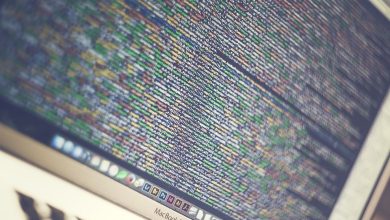
In today’s digital age, technology plays a crucial role in almost every aspect of our lives. From communication to banking, shopping to entertainment, technology has revolutionized the way we live and work. However, along with the numerous benefits that technology brings, there is also a dark side that lurks in the shadows – hacking.
Hacking is the unauthorized access to computer systems or networks with the intent to disrupt or steal information. What was once seen as a harmless hobby for computer enthusiasts has evolved into a serious threat to individuals, businesses, and even governments. The consequences of hacking can be devastating, ranging from financial loss to identity theft, and even national security breaches.
One of the most common forms of hacking is identity theft, where hackers steal personal information such as social security numbers, credit card details, and passwords to commit fraud. This can result in financial ruin for the victim, as well as damage to their credit rating and reputation. In some cases, hackers may even use stolen identities to commit more serious crimes, such as terrorism or drug trafficking.
Another danger of hacking is the potential for cyber attacks on critical infrastructure, such as power grids, water systems, and transportation networks. A successful cyber attack on these systems could have catastrophic consequences, leading to widespread disruption and chaos. In recent years, there have been numerous high-profile cyber attacks on government agencies and corporations, highlighting the vulnerability of our digital infrastructure.
Furthermore, hacking can also have serious implications for national security. Hackers working on behalf of foreign governments or terrorist organizations can gain access to sensitive information, such as military secrets or classified intelligence, posing a significant threat to a country’s security and sovereignty. The rise of state-sponsored cyber warfare has raised concerns about the ability of nations to defend themselves against these sophisticated attacks.
In addition to the direct consequences of hacking, there are also broader societal implications to consider. The erosion of trust in online systems and the fear of being hacked can have a chilling effect on our use of technology, leading to decreased innovation and economic growth. Furthermore, the increasing reliance on technology in all aspects of our lives means that the potential impact of a large-scale cyber attack is greater than ever before.
So, what can be done to combat the dangers of hacking? It is crucial for individuals and organizations to take steps to protect themselves from cyber threats, such as using strong passwords, keeping software up to date, and being cautious of phishing scams. Governments and law enforcement agencies also play a vital role in combating hacking through legislation, enforcement, and international cooperation.
In conclusion, while technology has brought countless benefits to society, it also comes with a dark side that must be acknowledged and addressed. The dangers and consequences of hacking are real and far-reaching, and it is essential for all of us to be vigilant and proactive in protecting ourselves from this ever-evolving threat. Only by working together can we ensure that the benefits of technology outweigh its risks.





